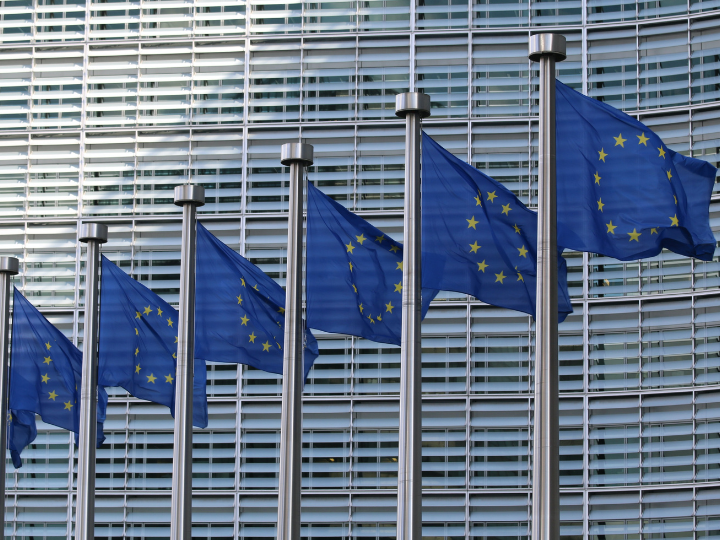by Alexandra Brzozowski and Aurelie Pugnet
No European Union development funds earmarked for Palestine have found their way to Hamas, the European Commission said on Tuesday (21 November), but they called for stricter controls going forward.
A review was ordered after the 7 October Hamas-led terrorist attack on Israel, with EU officials insisting it was a precaution and not because they had any indication bloc funds were going to Hamas.
The EU is the biggest provider of such aid to Palestinians and has earmarked some €1.2 billion for its programmes between 2021 and 2024.
“The review found no indication of EU money having directly or indirectly benefited the terrorist organisation of Hamas,” Commission Vice-President Valdis Dombrovskis told reporters in Brussels about the assessment.
Development aid is used for projects designed to have a long-term impact, such as paying officials’ salaries at the Palestinian Authority, which governs the West Bank, and the work of UN Palestinian refugee agency UNRWA.
It is separate from humanitarian aid, meant for urgent needs for essentials such as food, water and shelter.
“The review found that the control system in place has worked,” Dombrovskis said.
“As a result, payment to beneficiaries and the UN Relief and Works Agency for Palestine Refugees (UNWRA) will continue without payment delays”, he added.
Expenditure checked pre-dates the 7 October, when the Hamas terrorist group launched an attack on Israel, which prompted a strong reaction from Tel Aviv on the Gaza Strip, which Hamas uses as a base.
88% cleared
In total, the European Commission screened 119 contracts with a value of €330 million and “has not identified any cases of diversion of funding to terrorist organisations or funding that facilitated the spread of hatred or antisemitism,” one EU senior official said.
This equates to 88% of all contracts being evaluated, including €216.4 million for contracts with member states’ agencies, international organisations, the United Nations and the Pegase programme providing allowances to low-income families.
But the EU official said seven programmes worth €75.6 million were assessed as “non-feasible” as they relate “mostly” to infrastructure projects in Gaza, such as water desalination services.
Those funds will be reallocated to Palestine as development or humanitarian aid, Dombrovskis also said. The EU official said €25 million had already been reallocated to humanitarian aid.
“Nevertheless, we have asked for clarifications regarding the respect of contractual obligations to all implementing partners and a number of civil society organisations, otherwise known as NGOs,” the official added.
For the other 12% of the contracts representing €38.9 million, the Commission awaits more information from civil society organisations (CSOs) and NGOs, the report says.
The EU’s executive has asked for clarifications on “how they apply the controls”, the senior official said. “There are two cases in which there are allegations made – specific allegations of contract breaches – they were worth €8 million.”
Additional controls going forward
However, the European Commission wants to tighten the contracts with additional measures to add safeguards.
“In the current context, the risks of such problems have, in our view, increased, given the war ongoing and the very heightened political atmosphere, [and] additional measures to strengthen the controls, safeguards protect place are needed,” the EU senior officials said.
New rules would include incorporating, for instance, an “anti-incitement clause” to hate and violence, especially antisemitism, in all contracts with civil society in Palestine and Israel, which the European Commission would monitor.
They would also introduce ad-hoc eligibility criteria for participation in calls for proposals or direct awards that “effectively prevent entities that have been involved in acts of incitement to hatred and violence from being awarded”, the Commission said.
It also includes more scrutiny on third-party financing (i.e. subcontractors) and extends the screening of funds under the Pegase programme to a broader range of beneficiaries, including first-degree members of beneficiaries’ families.
So far, under the Pegase programme, “alerts relating to 29 beneficiaries were found, and these beneficiaries were excluded from the list of potentially eligible recipients,” the official said.
*first published in: Euractiv.com




 By: N. Peter Kramer
By: N. Peter Kramer

